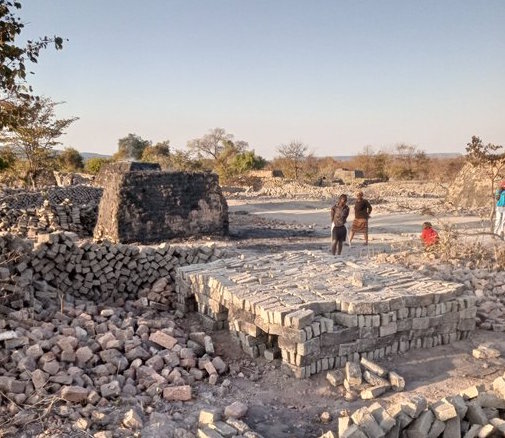|
Getting your Trinity Audio player ready...
|
By Nhau Mangirazi
Illegal farm brick moulding is affecting the environment and water bodies which will have a great impact on sustainable development and water management.
These were some key issues submitted during National Environment Action Plan (NEAP) consultative meeting in Hurungwe.
Hurungwe rural district official, Obey Makupo, suggested that brick moulding is affecting the environment.
‘‘Most of the rural communities are now doing commercial business selling to homeowners in Karoi town and Magunje growth point. They are destroying forests by clearing the ground and trees for the bricks. The majority of them do all this by the riverside and this affects water bodies that will be dry in a few years to come. Wetlands have been greatly affected,’’ noted Makupo.
Environment Management Agency’s district officer, Zvindaishe Rugata said there is a need to protect the environment through better deeds.
‘‘Let us work towards a better environment for future generations. Our input will help the national policy,’’ he added.
Hurungwe development coordinator, Andrew Tizora, who chaired the sessions, called on traditional leaders to ‘act decisively on wayward subjects’ that are starting veld fires.
‘‘The Chief has a mandate to protect the forests and must ensure the suspects get heavy sentences from traditional courts before they are brought for criminal justice that may take long,’’ said Tizora.
According to Zimbabwe’s Sixth Report on Biodiversity, the high deforestation rate which is currently about 330,000 ha per year is driven largely by agricultural expansion and reliance on wood energy.
‘‘Pollution of terrestrial and aquatic habitats from industrial, agricultural, and domestic activities and the prevalence of invasive alien species are causing increasing harm to biodiversity across the country.
‘‘Pollution is also likely affecting the species richness of aquatic resources. The use of mercury by artisanal miners to capture gold is polluting water sources. Failure of cyanide tanks for gold processing is also threatening aquatic resources. The country’s biodiversity is not spared from effects of climate change,’’ reads part of the 72-page draft paper of NEAP.
It adds that global climate models indicate that most of southern Africa, including Zimbabwe, will experience temperatures 2 ºC to 4 ºC higher than the 1961-1990 baseline in the coming decades, while the onset of rains will be less dependable and droughts and floods will be more frequent and severe.
‘‘Among the animals that are already threatened by climate change in Zimbabwe is the African wild dog (Lycaon pictus). Increasing temperatures will result in the loss of habitats, food, and water. The country which is part of the Convention on Biological Diversity (CBD) and SADC Protocol on Wildlife Conservation and Law Enforcement should uphold and sustain its ongoing programs and activities for biodiversity conservation.
‘‘They include anti-poaching activities, education, and research and community conservation,’’ reads the draft.
It further notes that waste management is one of the topical environmental challenges faced by local authorities in Zimbabwe.
‘‘It is traditionally considered an urban phenomenon but is increasingly becoming an emerging issue in rural areas, especially around growth points and rural centers. It is important to note that there are various types of waste, such as municipal, which includes household, commercial, and demolition waste; electronic or e-waste, which includes computer parts; and radioactive waste, among many other forms of waste. The management of waste has proved to be a major challenge for local authorities in Zimbabwe as evidenced by large volumes of uncollected solid waste leading to pollution of land and water bodies,’’ says the document.
Zimbabwe is generating very high volumes of solid waste; the last comprehensive study conducted to measure waste generation rates estimated that Zimbabwe’s urban centres were generating approximately 1.65 million tonnes of solid waste in 2011.






